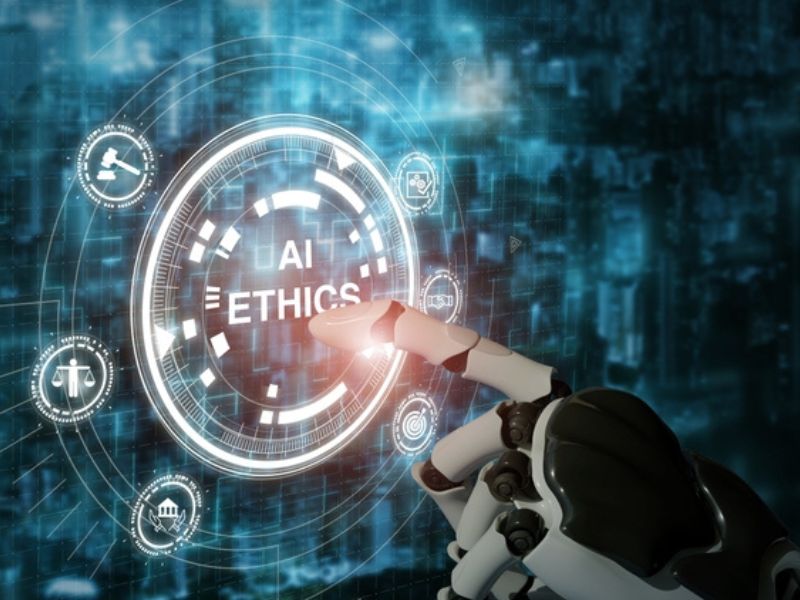As AI rapidly advances, it brings immense opportunities for progress and innovation and raises ethical concerns. The development and deployment of AI require balancing opportunities and responsibility. This article explores AI’s ethical dimensions and the need for a harmonious equilibrium.
Beneficial Applications
AI can revolutionize sectors like healthcare, transportation, finance, and education, offering efficiency, better decision-making, and new avenues for discovery. For example, AI-based medical diagnostic systems can detect diseases early, saving lives and resources. Autonomous vehicles can reduce accidents, making transportation safer. These advancements improve the human experience and address societal challenges.

Image Credit: Shutterstock/3rdtimeluckystudio
Accountability And Transparency
As AI advances, concerns about accountability and transparency arise. Decision-making processes of AI systems must be traceable, auditable, and free from biases, significantly when they impact individuals or communities. Responsibility for the actions and potential harm caused by AI systems is crucial. Transparency in data collection and usage is vital for maintaining trust between developers, users, and society.
Equity And Fairness
AI’s potential to worsen social inequalities is a significant ethical concern. Biased or limited datasets can perpetuate discrimination or exclusion. Addressing biases, promoting diversity in AI teams, and implementing rigorous testing and validation procedures are crucial to mitigate this. AI should be designed and deployed to ensure fairness, inclusivity, and equal opportunities for all.

Image Credit: Shutterstock/panuwat phimpha
Human Oversight And Responsibility
While AI systems can automate complex tasks, human oversight remains essential. Humans must retain responsibility for the decisions made by AI technologies. It involves setting clear boundaries and ensuring that humans are ultimately accountable for the outcomes. Ethical frameworks and regulatory mechanisms need to be established to govern AI development, deployment, and usage, preventing potential misuse or unintended consequences.